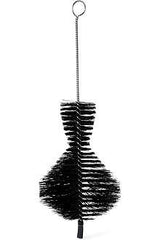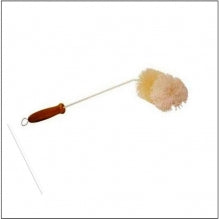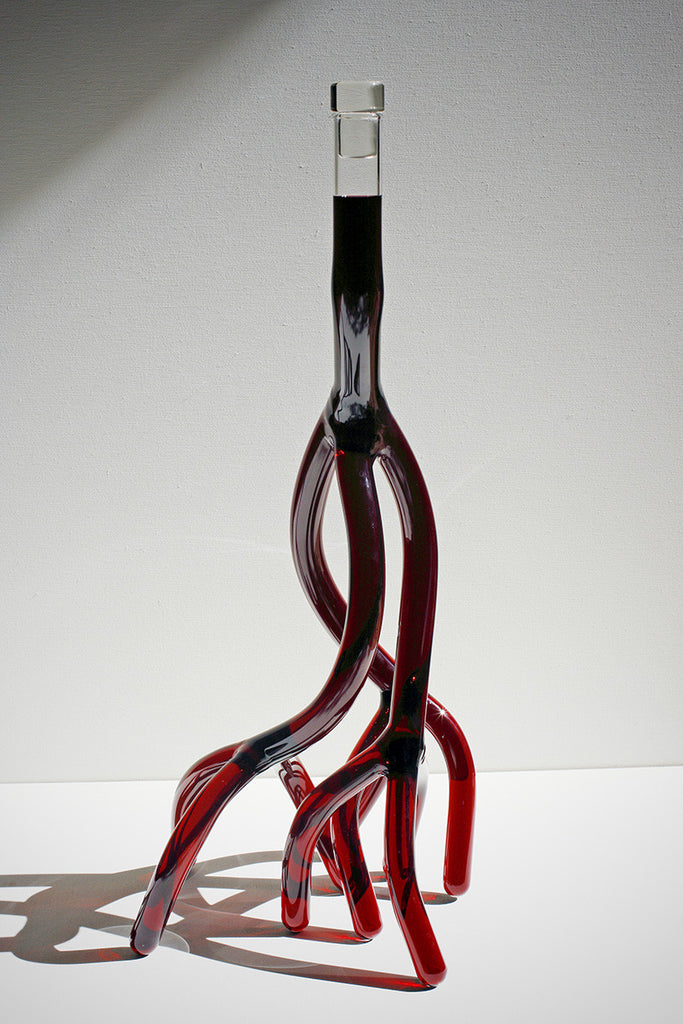For those of us who use decanters on a regular basis, there comes a time when a simple rinse with soap and water no longer does the trick.
The other day we were inspecting one of favourite carafes and noticed something...a little off. As in we could barely see the new contents for the remains of the old.
A thorough washing under the tap didn't alleviate the problem. Sigh. Time to go to more drastic measures.
There are a few schools of thought on the best way to clean a clean a decanter, but most revolve around 2 central themes: some sort of cleansing solvent which causes a chemical reaction, or an abrasive scouring method caused by brushing or swirling the contents.

You can buy decanter cleansing solvent, but most people just opt for some sort of mildly acidic home remedy. Here are a few pro ported suggestions:
- A vinegar and water solution: swirl on the inside and let sit from a few minutes to 24 hours (make sure to rise well. No one wants to drink red wine vinegar.
- Baking soda and water: this has the added benefit of being mildly abrasive.
- Oxyclean: there is a whole contingency who believe this is the very best method to get sparkly clean results. Although it's worth noting that if you are cleaning crystal this may eat into the surface over a period of time.
- Denture cleaner: same theory, a bit more extreme.
- A neutral organic substance: i.e. use a bottle of cheap white wine. Swirl and soke. The alcohol acts as a cleanser. You can also use vodka, tequila, or technically any colourless alcohol (including good old rubbing alcohol). Be prepared, this may take an eternity of soaking.
Usually people opt for a scouring method. Used alone, with water, or with vinegar.
- Decanter brush: these come in all shapes, sizes and forms, from bristles to foam.



- Cleaning balls: you can opt to buy official "decanter cleansing balls", but really, BB's are exactly the same thing. Pour in decanter and swirl until the build-up starts to come off. Be careful when adding to the decanter that you don't chip or break the glass. Add vinegar, swirl and let soak for an extra layer of grit removal.

- Rice: same principal as the bb method. Be sure to use uncooked white rice, or you'll have another mess to clean up.
- Ice: It's not corrosive and non-abrasive. However this may take some time and effort.
- Other rough surfaces: sand, crushed eggshells (that was really a suggestion), barley or other grains.
Now if only someone has a good suggestion on how to clean this...

No comments:
Post a Comment